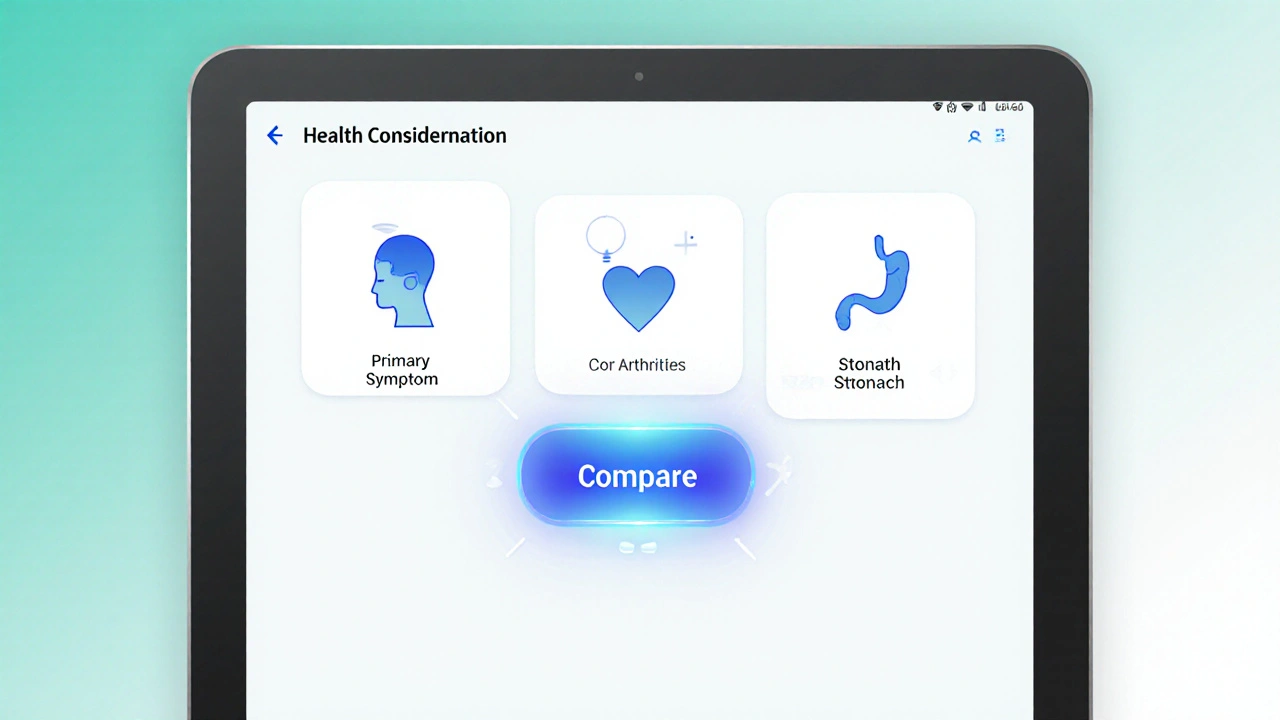When working with OTC NSAIDs, over‑the‑counter non‑steroidal anti‑inflammatory drugs you can buy without a prescription. Also known as non‑prescription pain relievers, they help reduce inflammation, fever, and mild‑to‑moderate pain. Most people reach for them when a headache, sore muscles, or a fever shows up. OTC NSAIDs are available in tablets, gels, and liquids, making them convenient for quick relief at home.
One of the most common members of this group is ibuprofen, a short‑acting NSAID often used for headaches, menstrual cramps, and minor injuries. It works by blocking the COX‑1 and COX‑2 enzymes that produce prostaglandins, the chemicals that cause pain and swelling. Another staple is naproxen, a longer‑acting NSAID that stays in the system for up to 12 hours. Because it lasts longer, naproxen is a favorite for chronic joint pain or backache. aspirin, the original NSAID, also reduces fever and can thin blood at low doses. While aspirin’s pain‑relief power is milder than ibuprofen’s, its antiplatelet effect makes it useful for heart‑health recommendations under doctor guidance.
The core idea is simple: every OTC NSAID inhibits the same enzyme pathway, so they share benefits and risks. The relationship can be summed up as: OTC NSAIDs encompass ibuprofen, naproxen, and aspirin; each requires proper dosing to avoid stomach irritation; and each influences blood clotting to varying degrees. When you need fast relief for a sports strain, ibuprofen’s quick onset fits best. For a lingering arthritis flare, naproxen’s extended coverage reduces the need for frequent re‑dosing. If a doctor has suggested low‑dose aspirin for cardiovascular protection, that’s a different use case entirely and should follow medical advice.
Safety matters across the board. All three drugs can irritate the stomach lining, especially when taken on an empty stomach or combined with alcohol. People with a history of ulcers, kidney disease, or heart failure should check with a healthcare professional before reaching for any OTC NSAID. Kids under 12 need special formulations and dosing calculations—most pediatric labels recommend ibuprofen rather than aspirin because of the risk of Reye’s syndrome.
Below you’ll find a curated list of articles that dive deeper into buying cheap generics, comparing side‑effects, and choosing the right medication for your specific situation. Whether you’re hunting for price‑saving tips, need guidance on safe use during pregnancy, or want to understand how these drugs interact with other medicines, the posts ahead give practical, up‑to‑date advice you can act on right now.

Compare Motrin (ibuprofen) with top alternatives, see pros, cons, safety tips and get help picking the right pain reliever for you.
read more